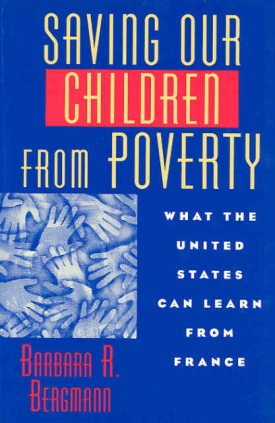American Women in Transition
About This Book
This is the first in a series of eighteen projected volumes, to be published over the next two years, aimed at converting the vast statistical yield of the 1980 Census into authoritative analyses of major changes and trends in American life. A collaborative research effort, funded by public and private foundations, this series revives a tradition of independent Census analysis (the last such project was undertaken in 1960) and offers an unparalleled array of studies on various ethnic, geographic, and status dimensions of the U.S. population.
It is entirely appropriate that the inaugural volume in this series should document trends in the status of American women. Dramatic social and demographic changes over the past two decades make American Women in Transition a landmark, an invaluable one-volume summary and assessment of women's move from the private domain to the public. Clearly and in detail, the authors describe women's increasing educational attainment and labor force participation, their lagging earning power, their continued commitment to marriage and family, and the "balancing act" necessitated by this overlap of roles. Supplementing 1980 Census data with even more recent surveys from the Census Bureau and other federal agencies, Bianchi and Spain are able to extend these trends into the 1980s and sketch the complex challenges posed by such lasting and historic changes.
This definitive and sensitive study is certain to become a standard reference work on American women today, and an essential foundation for future scholarship and policy concerning the status of women in our society.
SUZANNE M. BIANCHI is a demographer at the Center for Demographic Studies at the U.S. Bureau of the Census.
DAPHNE SPAIN is assistant professor of sociology and urban planning at the University of Virginia.
A Volume in the RSF Census Series
RSF Journal
View Book Series
Sign Up For Our Mailing List
Apply For Funding

Saving Our Children From Poverty
About This Book
More than one in five American children live below the poverty line, a proportion that exceeds that of any other advanced nation. Although large numbers of Western European children live with single or unemployed parents, or belong to disadvantaged minorities, they are better shielded from severe deprivation by carefully designed public assistance programs. Saving Our Children from Poverty describes one of the most successful European systems of assistance for families, that of France, and through comparison with American programs offers a valuable guide to improving our own safety net for children and reforming our dysfunctional welfare system.
Saving Our Children from Poverty details the array of benefits available to both high- and low-income families in France. Government-run nursery schools provide free, high-quality care for almost all children between the ages of three and six. Children also receive guaranteed medical care under a national health insurance plan. The French system offers married couples most of the same benefits as single parents, and creates strong incentives to seek and hold jobs rather than remain on welfare. A French single mother who chooses to work still receives substantial income supplements, housing assistance, subsidized health care, and access to public child care facilities. In stark contrast, her American counterpart loses most of her cash benefits if she takes a job and receives no government assistance with child care. Because American policies focus disproportionately on aiding the poorest non-working families, parents forced to rely on low-wage jobs are frequently left without the resources to provide their children with an adequate standard of living.
As the public debate on welfare reform continues to rage, ever more American children fall into poverty. Why does the nation remain so unresponsive to their plight? Saving Our Children from Poverty probes the American aversion to national assistance programs, citing the negative attitudes that have seeped into the current political discourse. A lack of faith in the federal government's administrative abilities has bolstered a trend toward decentralization of programs, as well as a growing resistance to taxation. Racial antipathies and a belief that financial support encourages irresponsibility further undermine the development of programs for those in need.
Saving Our Children from Poverty illustrates what a nation no wealthier than ours can realistically accomplish and afford, and concludes with a viable blueprint for successfully applying aspects of France's system to the United States.
BARBARA R. BERGMANN is professor of economics at American University, Washington, D.C.
